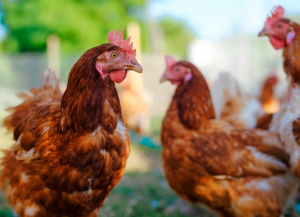
In May 2021, the world’s largest meat-processing company, JBS Food Group, was forced to shut down most of its facilities following a widespread ransomware attack. The attack, one of the largest affecting the agricultural sector in US history, occurred just weeks after the Colonial Pipeline attack and as such was largely overshadowed in the press. In the aftermath, however, industry experts recognized that today’s agricultural endeavors involving highly technical and regulated systems make them vulnerable to detrimental cyberattacks. Cybercriminal organizations increasingly target farms and livestock facilities in various ways for their nefarious purposes:
- Cyberattacks from foreign nations often involve information-gathering since agriculture is a crucial component of infrastructure. Often, the perpetrators gather valuable data about technology or seed development. Russia in particular exploits this type of information as a weapon in the war in Ukraine.
- Whether or not they are carried out, threats to farms often bring potential catastrophe. For example, chicken farms in both the US and Canada have reported warnings that temperature controls will be disrupted unless a ransom is paid. A facility holding thousands of birds that suddenly heats to 98 degrees could cause terrible financial loss to an owner.
- Other farms have described sensors, meant to detect disease in cattle, alerting to the presence of illness, only to discover later that their technology had been manipulated. The interim response is expensive and potentially dangerous to healthy cattle.
- “Hacktivists,” animal rights activists in disagreement with farm practices, constitute yet another threat. These groups typically hope to disrupt operations completely and are not typically seeking a ransom.
- Traditional attacks like ransomware and data encryption, meant to elicit a large ransom payment, continue to plague the agriculture industry. Often, the cybercriminal has monitored the system for months before making himself known, gathering large amounts of information before a last strike.
Bankers, lawyers, and medical professionals have long understood the critical need for robust cybersecurity protection for their businesses. Growing crops and raising livestock have long been considered off the radar for cybercriminals, but most farmers have begun to recognize that poor weather conditions and disease are not the only threats to their livelihoods. Agricultural operations must strengthen their security measures. Farms that specialize in everything from produce to livestock are all considered critical infrastructure, and their preservation contributes to national security.
Are you wondering how attractive your business might be to cybercriminals? Take advantage of our free security assessment by signing up here. It’ll take under an hour of your time, but we will provide you with a valuable report highlighting vulnerabilities in your network, making you a sitting duck for hackers.


